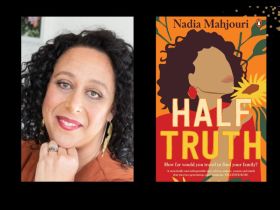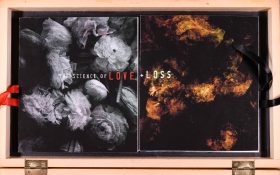Popular opinion suggests that developing a specialty or niche is important when it comes to building a successful writing career. In fact, for any creative career in our contemporary world, bespoke skills are considered marketable.
For some, this advice holds true – a niche is about your reputation in one area. Once you become synonymous with that specialisation you are ideally the first choice for editors to call on. But for others, a more general approach is better. Particularly when the market is impacted in unforeseen ways.
Freelance writer Lindy Alexander, also known widely for her blog The Freelancer’s Year, said she is ‘a generalist writer through and through. I think that’s because so many things interest me I couldn’t imagine narrowing down to writing about only one thing or in one industry.’
Even though Alexander identifies as a generalist, that doesn’t mean she isn’t very specific about what she pitches to editors, preferring to write for particular sections of a publication that align with her broad positioning as a lifestyle, food and travel writer.
‘Often my generalist approach means I can merge two of my interests into one story, which I think often makes it easier to come up with ideas (e.g. the intersection of travel and food),’ she explained.
In the world of books, niches don’t need to be the end-all of making it as a writer either. In fact, according to Brisbane-based author Nick Earls, the trick is to cultivate a variety of niches and to expand into new work opportunities when possible.
‘A smart writer plans for times when not every book is a bestseller, and therefore it helps to have a few potential ways of earning income,’ he said.
His advice to other authors is to find the middle ground, somewhere between focusing on one specialisation and trying to be everything to everyone. Earls said he has actively nurtured different types of work that won’t be subjected to the same market forces all at once.
‘That’s the value of a niche, or multiple niches. If you get the chance to focus on one thing and you become good at it and become known for it, then it’s much more likely that business will come to you in that area and you can keep developing your skills. But, from my point of view, it’s good to have a small number of things to focus on and try to keep doing,’ he said.
For Earls this includes running workshops in schools, as well as writing adult fiction. While he enjoys both, he is most passionate about writing fiction. But focusing on the one area is not only risky as the sole income stream, it would also cut him off from new experiences.
‘I love writing adult fiction, but I actually don’t mind that it’s necessary for me to have other strengths to my work because I’m probably writing better adult fiction when I’m not sitting down here every day writing it.’
Read: A breath-taking cornucopia of brilliant quotes: Have book endorsements gone too far?
‘Because I’m going out into schools and universities teaching, it makes me reflect on my own process. I learn more about what I’m doing and I can then take more deliberate steps and fine tune it,’ said Earls.
Alexander also has diversified offerings. As well as writing across lifestyle, travel and food, she also has corporate clients in health and higher education.
‘For me, my public facing profiles describe me as a food, travel and lifestyle writer. My approach is that when editors Google me I want them to see a profile that reflects the stories I’m pitching,’ she explained.
When it comes to approaching corporate clients Alexander is much more selective in how she represents herself. ‘When I approach corporate health organisations, I emphasise my background in social work and health-related articles I’ve had published, whereas for clients in the higher education space I emphasise my graduate qualifications.’
‘And even though my portfolio is pretty much all food, travel and lifestyle content, I still have clients outside of these industries reach out to me because they like my style of writing. So, I don’t think not having a niche has hampered me in any way. In fact, I think it has helped,’ she said.
Diversifying even further, Alexander has also moved into online learning recently. ‘I launched my online course Write Earn Thrive in July this year with the aim of de-mystifying the process of how to earn a great living from freelance writing,’ she said.
‘One of the most common pieces of advice for freelance writers is to develop a niche, but so many writers don’t have a niche (or don’t want one), so Write Earn Thrive works with where writers are at,’ she explained.
Instead of showing writers how to develop a niche, the course focuses on helping them articulate what they offer and for who. Alexander said for lots of writers, this can be two or three main industries and different types of content. Her advice is to get clear about your offer as a writer and write targeted emails when introducing yourself to new potential clients or editors.
Of course, the negative impact of being too specific if you can potentially be impacted by changes, like the current pandemic.
‘The advantage of having a niche is that you can become the go-to person for a publication or client, but I know lots of writers who only wrote travel stories and once the pandemic hit, found themselves completely out of work,’ said Alexander.
‘I think the diversity of being a generalist can mean that you’re insured in some way against unexpected changes to an industry or a publication going bust.’





